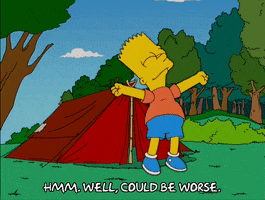Liberty was an alluring and tantalizing ideal for the enslaved citizens of the United States. This liberty would provide access to the ballot, rights to paid wages, the ability to obtain an education, and a certain legal stature that could never be taken away. However, before all these specificities were established, how to move forward with this new liberty was unclear, allowing two extremely distinguished but different African American men to vocalize their thoughts on moving forward; the fiery and contemptuous W. E. B. Du Bois and the reserved Booker T. Washington.
Washington's assertions throughout his recollections of childhood present his stance as more conservative and passive. This conservative outlook is displayed when he refers to his father, presumably a white male who abandoned his mother, as "simply another unfortunate victim of the institution which the Nation unhappily had engrafted upon it at that time." Washington including his white father within the sphere of victims that slavery has taken its toll on portrays his peaceful disposition as well as his conservative standpoint; by considering white people as victims of slavery, blacks can see them differently and without the distortion of malice that comes from viewing a former assailant. The same conservatism is expressed in Washington's Atlanta Exposition Address when he instructs former slaves that "No race can prosper till it learns that there is as much dignity in tilling a field as in writing a poem. It is at the bottom of life we must begin, and not at the top. Nor should we permit our grievances to overshadow our opportunities." Washington realizes that education is a noble and justified pursuit, but he is also staggeringly aware that not everyone can excel in these fields and there must be laborers. Washington's opinion is very well formulated, having grown up in poverty and always wishing to pursue his studies but having to sacrifice time to work. He brings a realistic, yet defeating view of life for the freedmen, making sure to emphasize the need for black people to remain in agriculture and other positions looked down upon. Although Washington's outlook is one that takes into consideration the welfare of the nation, it also carries a defeated essence to it, accepting the lowly position and not complaining. Just because a situation can be worse doesn't mean you should be thankful for what you have now.
 Du Bois's upbringing differs vastly from Washington as he was born free in New England and had to grow to face racism and prejudices throughout the north and south. Du Bois retains a more vengeful and militant tone as he utters the opposite of Washington's words stating "To be a poor man is hard, but to be a poor race in a land of dollars is the very bottom of hardships." Du Bois refutes the idea of blacks remaining in a lower social or economic position and recognizes that poverty is not the worst but to remain poor amidst the rich is truly horrid. Washington accepts the lower social stature, the poverty, the degradation, whereas Du Bois refuses to include these in his idea of true liberty.
Du Bois's upbringing differs vastly from Washington as he was born free in New England and had to grow to face racism and prejudices throughout the north and south. Du Bois retains a more vengeful and militant tone as he utters the opposite of Washington's words stating "To be a poor man is hard, but to be a poor race in a land of dollars is the very bottom of hardships." Du Bois refutes the idea of blacks remaining in a lower social or economic position and recognizes that poverty is not the worst but to remain poor amidst the rich is truly horrid. Washington accepts the lower social stature, the poverty, the degradation, whereas Du Bois refuses to include these in his idea of true liberty.The men's conflicting opinions may possibly be rooted in their upbringings. Washington can understand a world of much more cruelty and much less opportunity, thus crafting him more appreciative for the small progress. Du Bois, growing up free, granted rights innately, refuses to accept anything less than humane treatment and true equality. I have to agree more with Du Bois, for I've seen bad. I proudly will consider myself a pessimist at any moment because I believe this world is cruel, but just because it can be bad, doesn't mean you should say thank you for people pissing on you.

Comments
Post a Comment